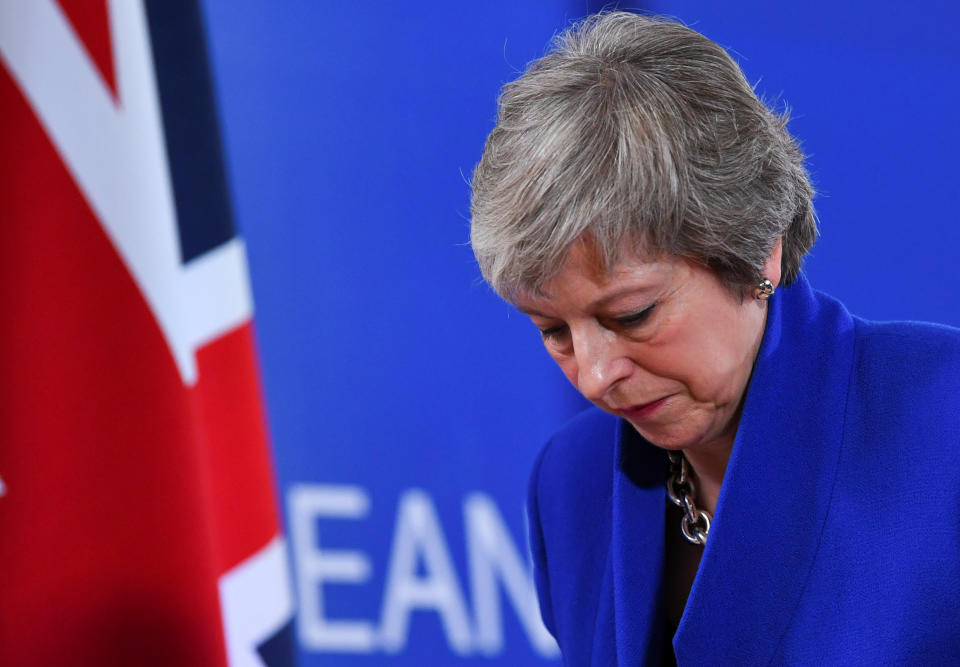Theresa May's Brexit deal 'will cost UK £100bn' by 2030

UK prime minister Theresa May has been on the offensive ever since she sealed a draft Brexit deal with the European Union. But according to the National Institute of Economic and Social Research (NIESR), her agreement with the bloc will leave the UK £100bn ($128.3bn) worse off by 2030.
The report entitled The Economic Effects of the Government’s proposed Brexit Deal, sent to Yahoo Finance UK ahead of its launch at 12pm local time today, was commissioned by the People’s Vote, which are campaigning for a second referendum on whether the UK should leave the EU.
The report highlights include:
GDP would contract by 3.9%
Tax revenue would fall £18-23bn ($23-29bn)
Foreign direct investment (FDI) would fall by 21%
UK/EU total trade would fall by 46%
GDP per head would fall by 3%, worth around £1,000 per annum

The report’s authors, Arno Hantzsche, Amit Kara, and Garry Young, said “the main focus of our analysis is on how the government’s proposed Brexit deal is likely to affect the economy, leaving aside the effect it might have on uncertainty. Our assessment is that trade with the EU, especially in services, will be more costly after Brexit.
“In addition to the economic impact of the changes in the UK’s trading relationships brought about by the deal, is the effect it has on uncertainty and confidence. So far at least, the government’s proposed Brexit deal has not gained widespread political support and it is not clear that it will be implemented. Even if the deal is implemented, there will continue to be uncertainty about the precise shape of the future relationship beyond the transition period ending on 31 December 2020,” they added.
On Sunday, EU leaders approved May’s withdrawal agreement with the bloc and urged the British public and politicians to back her Brexit deal. European Commission president Jean-Claude Juncker said it was “a sad day” but described the agreement as the “best possible” deal for both sides.
May has since been on the offensive and revived Vote Leave’s controversial claim that Brexit will benefit the National Health Service (NHS) in a bid to sell her freshly-signed divorce deal.
Meanwhile, the People’s Vote campaign will meet at midday today in Westminster, London to discuss the study with Sir Vince Cable, leader of the Liberal Democrats and former secretary of state for Business, Innovation and Skills, Pat McFadden MP, former minister of state for Business, Anna Soubry MP, former minister of state for Small Business, Industry and Enterprise, and Dr Garry Young, director of Macroeconomic Modelling and Forecasting at the National Institute of Economic and Social Research.
While over 500,000 people marched in London to ask for a second Brexit referendum, May said last week that she has categorically ruled out holding a second vote as long as she is Britain’s prime minister. She even said she’d rather resign than allow a “People’s Vote.”

 Yahoo Finance
Yahoo Finance 
